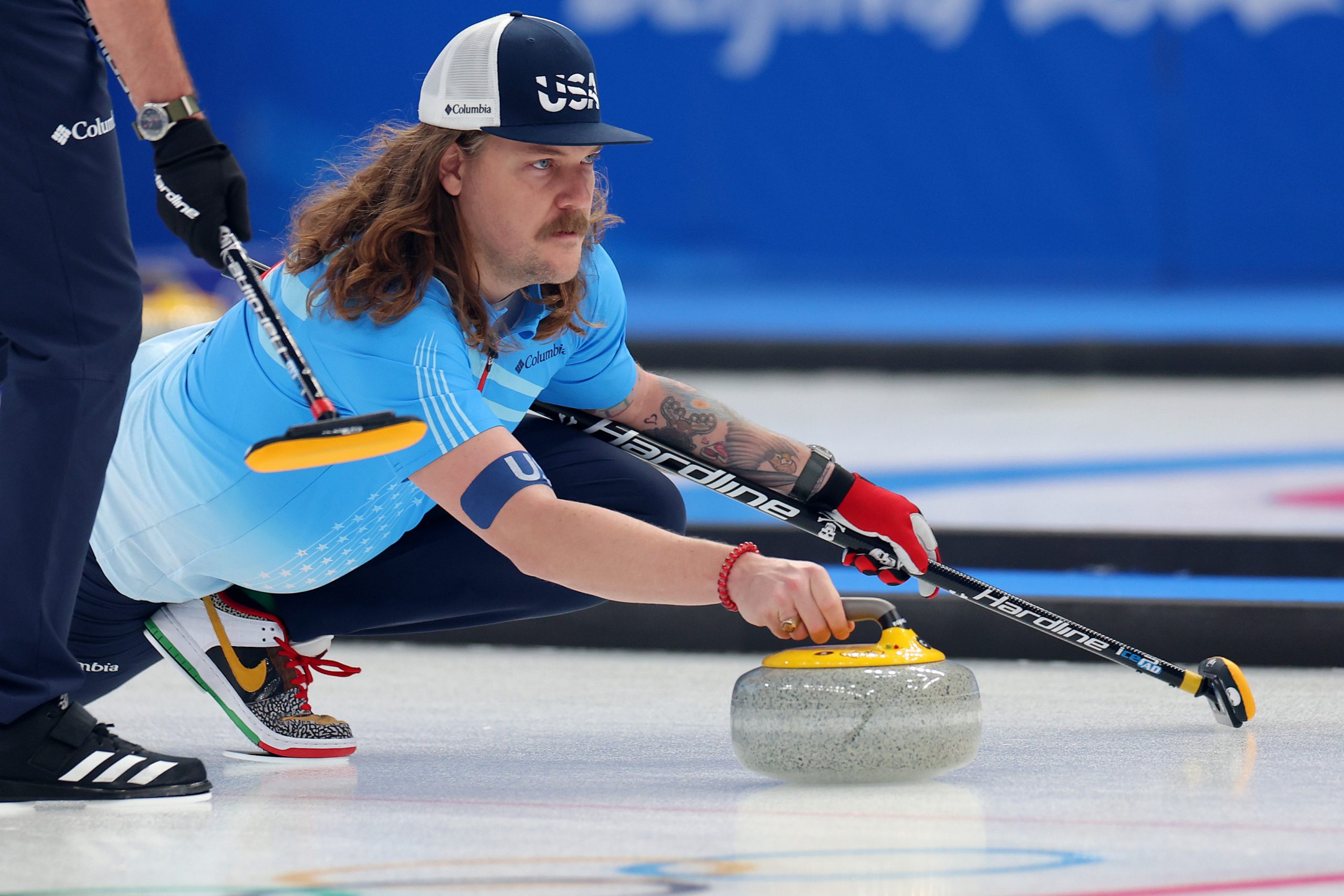Glorious Facial Hair
- 32-year-old Olympic curler Matt Hamilton is known for his mustache. And he’s using his facial hair’s fame to raise money for brain cancer research and clinical trials.
- Hamilton has partnered with a charity called StacheStrong, which has already raised $1.75 million for brain cancer.
- He is also growing out his hair so that after the olympics, he can chop it off and give it to "Wigs for Children" which helps kids battling cancer deal with hair loss from their treatment.
Hamilton, 32, knows his look might not be everyone's cup of tea, but he says it's really all about the way you carry yourself. "You've got to be confident with it," he said. "You've got to just go with it and walk around thinking, 'I'm repping a mustache.' If you are unsure about it, it'll show in your body language."
Read MoreWhen Hamilton cuts his hair, the hair will go to another volunteer organization called "Wigs for Children" which helps kids battling cancer deal with hair loss from their treatment. "Cancer has affected everyone. If having my hair look ridiculous at the Olympics helps in the fight against it, then something good is coming out of this," said the 32-year-old.
Why Participate in a Clinical Trial?
Clinical trials are a key tool in the toolbox of cancer patients and their care teams. "Clinical trials help patients receive cutting-edge treatments for cancer that otherwise would not be accessible to them," Dr. Suman Rao, Natalie's oncologist at MedStar Franklin Square Medical Center, tells SurvivorNet. "Patients on trials are also very closely monitored for side effects and often get the extra benefit of the whole research team being involved in their care.”
Clinical trials may offer life-saving treatments for some people, but they are also extremely important for scientific research.
From the initial cancer diagnosis, patients and their care teams should discuss options, Dr. Rao says. "Clinical trials should be considered at the first diagnosis of cancer, regardless of stage," she tells SurvivorNet. "There are new treatments being investigated for every stage of cancer." And that means more options and more reasons for optimism.
“I was excited [to join a clinical trial] because my husband had been diagnosed with a different type of cancer, a very hard to treat cancer. He had already been through that and been on trials, so I was already familiar before I got diagnosed,” Natalie says. “So when they said, ‘Do you want a clinical trial?’ I said absolutely.”
And not just for herself, but “for science,” she explains. “You want to contribute. I had a couple of sisters that passed away from cancer. So I just wanted to do my part to help the cause, if nothing else.”
How to Find Out About Clinical Trials
Patients should discuss clinical trials with their cancer care team, but can also empower themselves by doing their own research. "There are various resources that can help find clinical trials," Dr. Rao explains, citing the websites for the National Cancer Institute and the American Cancer Society, as places to start.
Not all clinical trials are experimenting with groundbreaking treatments, so it is important to seek guidance about ongoing trials from your doctor.
Contributing: Alesandra Dubin
Learn more about SurvivorNet's rigorous medical review process.


